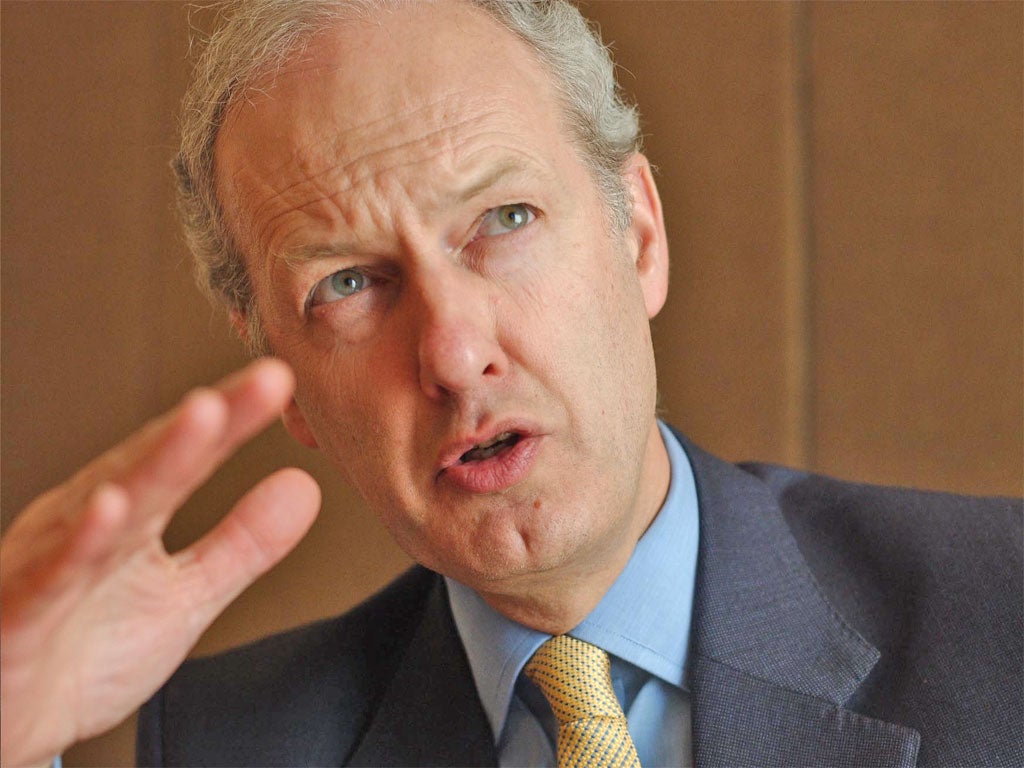Go or stay? Bolton keeps them guessing
It's crisis time for fund manager Anthony Bolton, as his China trust struggles in its sector. But does he regret coming out of retirement and moving to Hong Kong?

Will he or won't he? The question that famed fund manager Anthony Bolton refuses to answer is the one about his future. But it's the key issue for his many fans and followers. Will he still be manager of the Fidelity China Special Situations investment trust after April 2013?
That date was set by Mr Bolton himself when he came out of retirement in 2010 and moved to Hong Kong to launch the China fund. At the time he said he would manage the new fund until at least April 2013. That "at least" gives him the option of a second retirement at the top. But only if his Chinese hunch proves correct.
However, so far his £580m fund has proved a massive disappointment. It lost 34 per cent of its value last year while languishing fifth out of the six investment trusts in its sector.
That's hardly the performance figures you'd expect from the small company specialist. After all, he achieved consistent growth of 20 per cent a year for 28 years while managing the Fidelity Special Situations fund until December 2007.
His management skills consistently outperformed the index, meaning anyone who stuck with him would have seen a £1,000 initial investment grow to £147,000 by the time he retired.
So he's risked his reputation by returning to management. And, to date, the prospects don't look promising.
But that's all about to change, he told The Independent. Mr Bolton believes that China is already in recovery.
"Something quite important changed in China in November," he said. "For most of the time I've been out there, the authorities have been tightening monetary policy. But in November they cut what is known as the reserve rate requirement for banks, and then cut it again this month."
He said the move was important because periods of easing are good for stock markets.
"It creates a much more favourable background for stock markets," he said. "Inflation has also fallen, to 4.5 per cent from 6 per cent, which helps."
But he also said the improving global economic position would help.
"I'm generally optimistic about world stock markets, and China is part of that.
"What's important in my business is not what the outlook is like, it's what outlook is discounted in prices.
"There are challenges out there, but I think that has already been reflected in prices."
His move to Hong Kong surprised many as he can't speak Mandarin or Cantonese. So how does he communicate with Chinese company bosses?
"Language has never been my strong subject," he admitted. "When I managed Fidelity Special Situations I had to have a translator when I met companies in southern Europe, for instance. I do the same now, although half the meetings are actually in English."
His China adventure has brought some surprises. "I didn't expect the market to be as bad as it was last year," he said. "The volatility in the Hong Kong market was as bad as anything I've seen in my career. In August and September big cap stocks were going up and down by 10 per cent a day, which I've never experienced before."
He invests in small to medium-sized firms and has around 110 stocks in his portfolio. These can be riskier than large corporates, and he's been hit harder than the other funds in his sector, which predominantly invest in large caps.
But Mr Bolton thinks the potential rewards are worth it. Indeed, he believes the recovery in Chinese stocks is already reflected in large cap companies, but has yet to hit the smaller ones in which he's invested. He also says he will benefit from falling inflation.
If he's right, and his fund starts to outperform the rest of the index, his decision to come out of retirement will be vindicated. But that is the short-term. Investors remain worried about what will happen to the fund next year.
So will Mr Bolton retire in April 2013,? "I can't answer that yet," he said. "All I can say is that I'll be there until at least April 2013 and before our annual general meeting in July I will say whether I'm stopping or going on. I'm considering different factors."
Factors that may be weighing upon him include, obviously, his desire to be seen to be a success.
Delaying making a decision until July gives him a bit of breathing space to see if his fund has turned the corner. If it has then you suspect that some of the other factors preying on his mind may encourage him to retire for a second time and return to England.
For starters there's the dog he left behind in his Sussex home, being looked after by a housekeeper. He admits it was a wrench to leave it behind when he and his wife moved to Hong Kong.
Then there's his love of classical music. The lack of cultural attractions out there – there's no Opera House, for instance – can weigh heavily and, while he has kept his compositional hand in by setting some ancient Chinese poetry to music, you sense that his soul isn't getting as much cultural nourishment as it has been used to.
But then we return to his professional pride which is currently out on a limb.
"I still strongly believe that at some stage over the next few years China will be the place to be," Mr Bolton said.
Will it still be the place for him to be? We'll find out in July.
Subscribe to Independent Premium to bookmark this article
Want to bookmark your favourite articles and stories to read or reference later? Start your Independent Premium subscription today.

Join our commenting forum
Join thought-provoking conversations, follow other Independent readers and see their replies